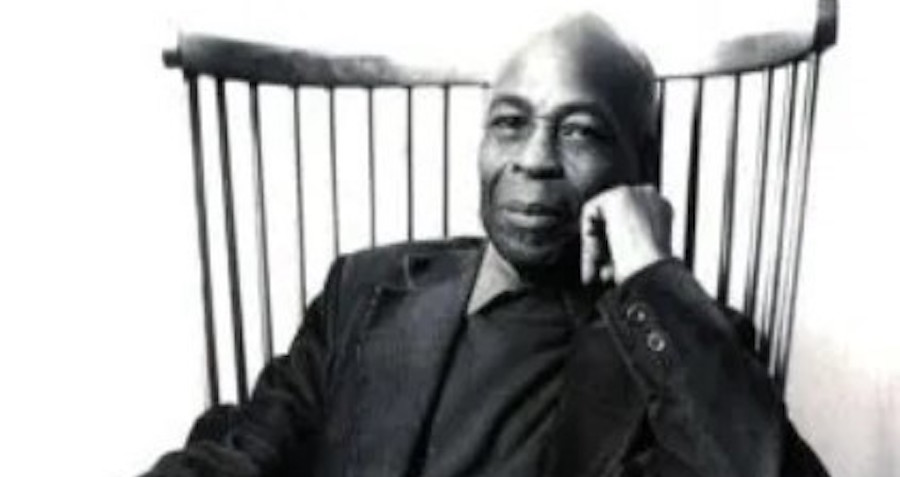 The month of celebration of black people’s history is upon us again in the UK. It starts in early October and Barbados TODAY features the life of an unsung and unheralded poet with a fascinating story.
The month of celebration of black people’s history is upon us again in the UK. It starts in early October and Barbados TODAY features the life of an unsung and unheralded poet with a fascinating story.
Peter Blackman, son of a stonemason and laundress, was born in St John, Barbados in 1909. He was awarded an Anglican Church scholarship to Harrison College where he excelled in his academic studies.
The Church had been seeking black recruits to be inducted into the priesthood and Blackman moved to Durham University where he obtained his degree in Divinity before entering the priesthood in 1933. He was sent to Gambia as a missionary where his latent sense for fair play in a lopsided society soon emerged.
He became aware that his white colleagues were receiving a greater salary for the same duties and his request for increased pay was rejected. This disturbed him enormously. The St. John man was also appalled to find that black people were made to sit at the back of the Church and this, together with the inequality of pay, left him with no alternative than to return to Barbados.
His exposure, first to the UK and then Africa, whetted his appetite for life in a wider society than that in Barbados and he returned to the UK in 1937. He was immediately attracted to the teachings of the Communist Party and was encouraged to join the organization.
Blackman’s young, fertile and roaming mind did not languish in the pleasantries of a mere existence in the relative comfort of the upmarket suburb of Hampstead. He was eager to find a degree of fairness for the relatively few black people who lived in the UK and his mission to work for the betterment of his people came bounding to the fore.
He soon took leading roles in black progressive groups such as the Negro Welfare Association, The League for Coloured People and the Committee for West Indian Affairs. Around this time, the country was engaged in World War II but, although eager to serve, he was not enlisted in the Forces.
However, his contribution was made as he helped to build the Wellington Bombers before moving on to work as a mechanic at a British Rail depot in Willesden, North West London.
Sooner or later the benefits of a classical and rounded education at Harrison College and Durham University were bound to surface and Blackman began to express his innermost thoughts in the form of poetry. He wrote many poems and made occasional broadcasts with the BBC until he was banned, perhaps because of his known communist leanings. Indeed, he was placed on an MI 5 file during the Cold War.
However, undaunted, he continued to write extensively although his work was shunned by the literati and left unpublished. Many felt this was a travesty for his work was birthed in a beauty in the style of biblical writing with a Caribbean flavour. Purists and pundits alike in the field of arts have favourably compared his work to that of established Caribbean giants such as Barbadians Edward Kamau Brathwaite, George Lamming, Trinidadian CLR James and Jamaican Louise Bennett.
The self-effacing Barbadian was not keen on adulation and publicity and it seemed not to bother him that his work was not published.
However, in recent years the injustices of such treatment were righted with the publication of his work. Titled Footprints and published by Smokesteak Books, the book gives an insight into the struggles of the day as experienced by a radically thinking mind. In a mirror image of the thoughts and feelings of our hero, Blackman wrote thus: “We do not pay enough attention to our exploitation of the ordinary. Yet, it is of such stuff that human society is made. What we must try to do is get at the ordinary and out of the ordinary, we bring excellence without elitism. The ordinary people, the men and women who go to work every day… out of them comes excellence.” Surely, a deep thought that is braced with care and humility.
He was a remarkable man with radical views that were not etched in fear. He was perhaps ahead of his time and he stood apart in immediate post-war Britain, sadly to be seen as the forgotten man of black literature and politics. He saw art as a weapon in defence of the poor and downtrodden.
Blackman was a close friend of the famous Paul Robeson who was known for his left-wing views and he accompanied Robeson to Moscow and Warsaw. He also arranged Robeson’s tour of Britain in 1949.
Blackman died in 1993 but his wonderful work lives on in the pages of Footprints. He married and subsequently divorced and was the father of three children.
He is an unsung and relatively unknown Barbadian who should be recognized and remembered for his contribution to West Indian life in the UK.
Vincent ‘Boo’ Nurse is a Barbadian living in London who is a retired Land Revenue Manager, Pensions and Investment Adviser. He is passionate about the development of his island home and the disapora.




